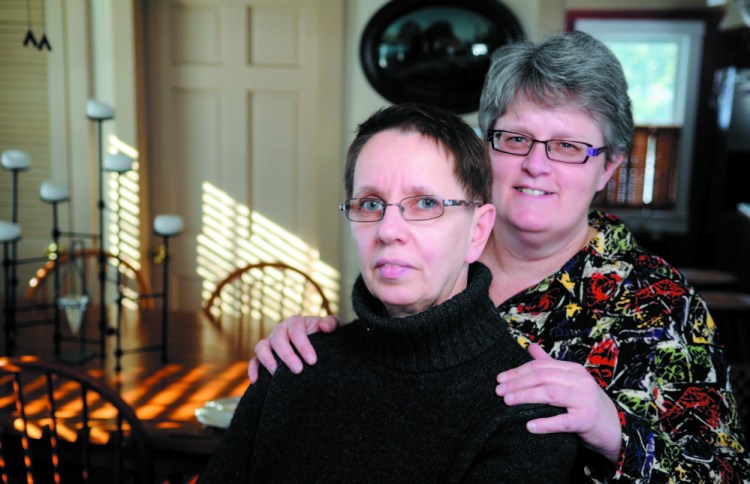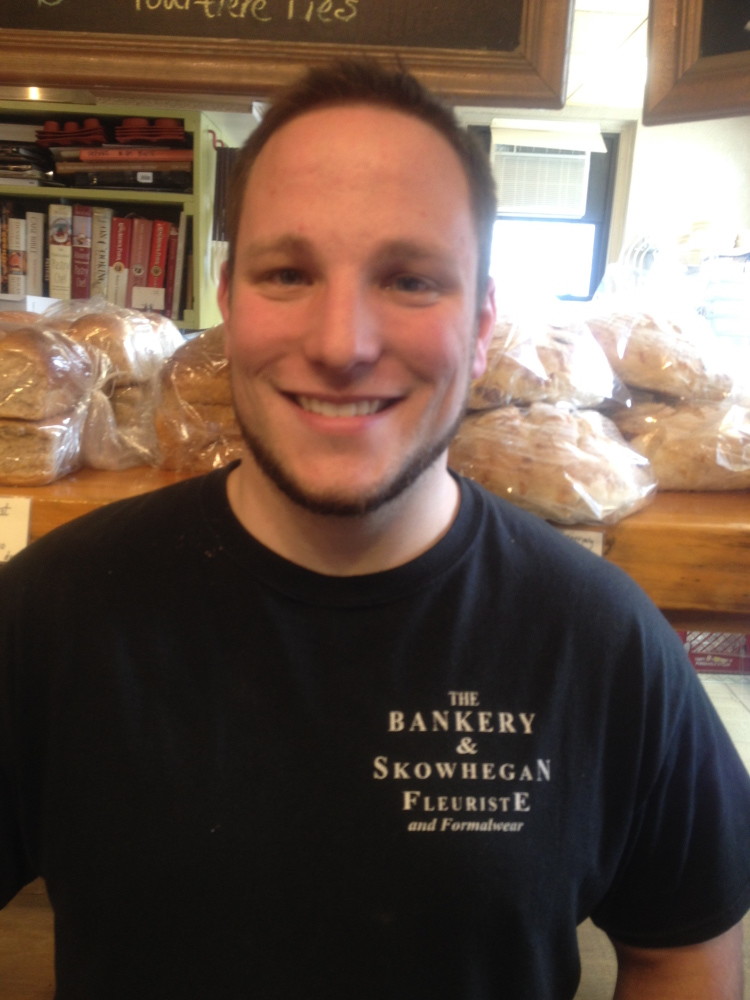AUGUSTA — Brenda Adler cried when she heard the news Friday morning. Then she couldn’t stop smiling.
In a landmark decision, the Supreme Court struck down state bans on same-sex marriage, saying in a 5-4 ruling that those couples have a right to marry anywhere in the nation. Maine was already one of 36 states that allowed same-sex marriage before the ruling, but the decision extended it to people in 14 Southern and Midwestern states that no longer are allowed to enforce their bans.
In 1995, Adler, now 62, of Augusta, and Melody Main had a ceremonial wedding at a Unitarian church in Westbrook. Some family members didn’t show up. In 2001, after Vermont legalized civil unions, they had a ceremony on Lake Champlain. Last year, they got married in Maine. Many of the relatives who didn’t come in 1995 were there.
“I don’t think there should be any reason that we should be treated differently, no matter what,” Adler said.
The Friday decision was something that Susan Farnsworth, of Hallowell, a lawyer who has been called Maine’s first openly gay legislator, said “just seemed beyond my comprehension” when she held her legislative seat from 1988 to 1994.
In Maine, the road toward same-sex marriage and other LGBT-rights measures was long, with many ups and downs for proponents. In 1977, the Legislature considered the first bill that proposed to ban housing and employment discrimination against gay people. Twenty years later, an anti-discrimination law passed, but voters repealed it in 1998. Voters approved a similar law in 2005.
In 2009, then-Gov. John Baldacci, a Democrat, signed a bill allowing same-sex marriage. Voters repealed it that year, but that result was flipped in 2012, when same-sex marriage passed at the ballot box. A May poll from Gallup said 60 percent of Americans polled support it now, a record high since the firm first asked the question in 1996.
Proponents touted a campaign around “one-on-one conversations” with voters to argue their case for equality, and Farnsworth said when she was in Augusta, she saw the effect of those types of conversations, which she said led to the movement’s progress.
“What we learned back then, to me, is the way these things are won, even in the Legislature, is by individuals speaking to individuals and people speaking to people they think they maybe should be afraid of,” Farnsworth said.
The decision upset many religious groups who have led the opposition to same-sex marriage. In a statement, Bishop Robert Deeley, of Maine’s Roman Catholic diocese, called the decision “a profound disappointment for all who know marriage to be grounded in human nature in the complementarity of man and woman,” but saying that “respect that is due to all people.”
“They’re using a good word, ‘marriage,'” said Pat Truman, of Hallowell, a Catholic who has long written letters to Maine newspapers opposing same-sex marriage, of the court, “but that doesn’t make sodomy acceptable to God or his principles.”
However, to Matt DuBois, who runs The Bankery, a downtown Skowhegan bakery, and a nearby flower and formal wear shop with Michael Hunt, his husband of nearly two years, the decision sends a simple message: “Love is love” and couples who want to marry should be able to.
“I think that’s just a basic human right that we can afford everyone,” he said.
Michael Shepherd — 370-7652
Twitter: @mikeshepherdme
Send questions/comments to the editors.





Comments are no longer available on this story